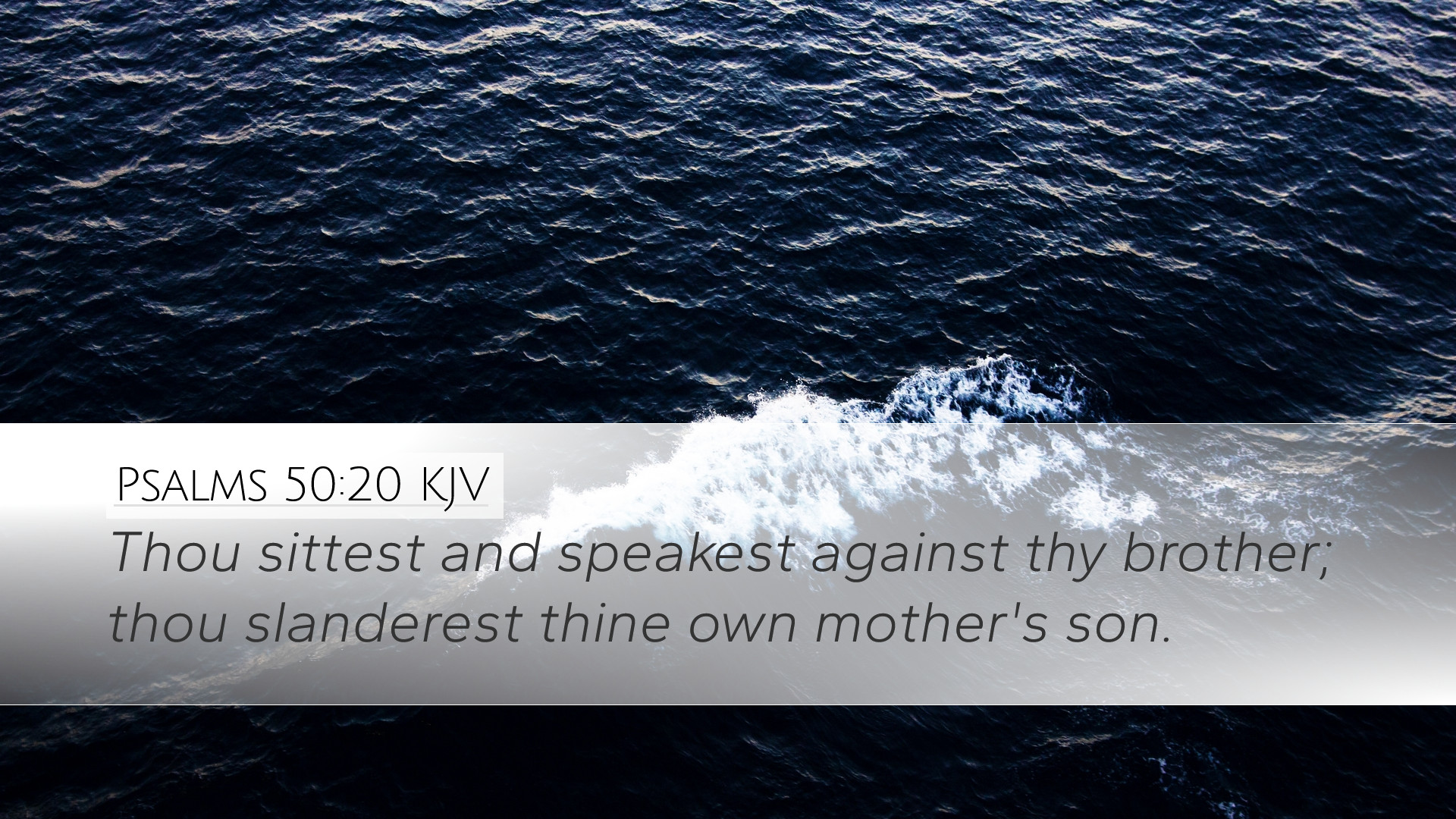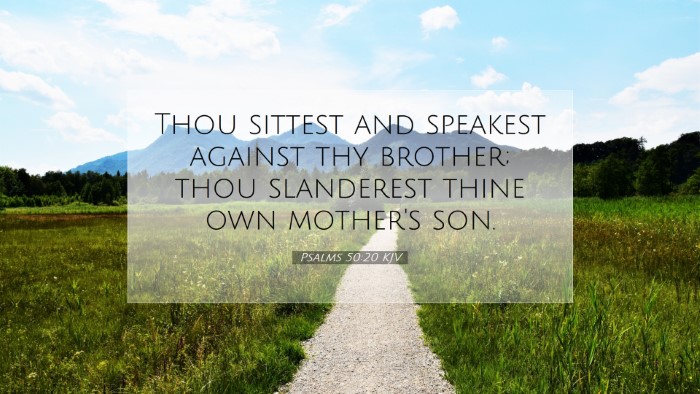Commentary on Psalms 50:20
Psalms 50:20 states, "You sit and speak against your brother; you slander your own mother's son."
This poignant verse addresses the themes of hypocrisy and the destructive nature of speech within the community of believers. Various public domain commentaries provide insightful reflections on this verse, helping pastors, students, theologians, and Bible scholars to explore its depths.
Overview and Context
The context of Psalm 50 is a divine summons to judgment, highlighting God's authority and the need for genuine worship and integrity among His people. In the preceding verses, the psalm emphasizes God's righteousness, His demand for true thanksgiving, and an admonition against hypocrisy.
Matthew Henry's Insight
Matthew Henry emphasizes the gravity of slander and how it poisons relationships. He notes:
- The sin of slander: Henry points out that speaking against one’s brother is a serious offense, indicating a failure to love and honor one's family and community.
- Self-deception: He suggests that those who engage in slander often deceive themselves, thinking they are righteous while their actions reveal the contrary.
- The familial bond: By referencing “your own mother’s son,” the psalmist underscores the sacredness of familial relationships and the betrayal involved in speaking ill of a brother.
Albert Barnes' Commentary
Albert Barnes provides additional layers of understanding, particularly surrounding the relational dynamics at play in this verse:
- Critique of hypocrisy: Barnes insists that the verse serves as a critique against those who, while appearing upright, denigrate and criticize others unjustly.
- The relational implications: He emphasizes that slander not only harms the individual being spoken about but also corrupts the community, creating an atmosphere of distrust and animosity.
- God's judgment: Barnes observes that the psalm serves as a reminder that God sees and will hold accountable those who engage in deceitful practices.
Adam Clarke's Interpretation
Adam Clarke elaborates on the personal and ethical implications of slander, presenting a pastoral perspective:
- Destructive habits: Clarke suggests that slandering one’s brother reveals a heart inclined towards malice and a penchant for gossip.
- Broader application: He touches upon the idea that the principles of this verse can extend beyond familial relationships to encompass all aspects of social interaction among believers.
- Call to accountability: Clarke emphasizes the need for believers to hold each other accountable in their speech, promoting a community grounded in love and truth.
Theological Implications
The theological ramifications of this verse are significant, particularly as it pertains to ethics within the community of faith:
- The nature of community: The verse highlights the expectation of love and respect among believers, portraying slander as antithetical to true Christian community.
- Dynamics of judgment: It serves as a reminder that God evaluates not only our external acts of worship but also our speech and intentions towards others.
- Repentance and restoration: In recognizing the sin of slander, there is an invitation for repentance and the restoration of broken relationships, echoing the broader biblical call to reconciliation.
Practical Application
In light of the truths found in Psalm 50:20, the following practical applications are vital for personal and communal spiritual health:
- Self-examination: Individuals are encouraged to examine their speech and attitudes towards others, questioning whether they engage in slander or gossip.
- Cultivation of community: Churches should foster environments that promote open communication, forgiveness, and accountability, discouraging behaviors that lead to division.
- Education on speech ethics: Pastoral teaching can include topics on the ethics of speech, emphasizing the weighty responsibility believers bear in their words.
Conclusion
Psalms 50:20 serves as a potent reminder of the responsibilities borne by members of the faith community regarding their speech and behavior towards one another. The insights gleaned from the commentaries of Matthew Henry, Albert Barnes, and Adam Clarke highlight the critical need for integrity, love, and accountability within the body of Christ. As believers reflect on this verse, they are called not only to examine their own speech but also to actively cultivate a community marked by love and righteousness.


